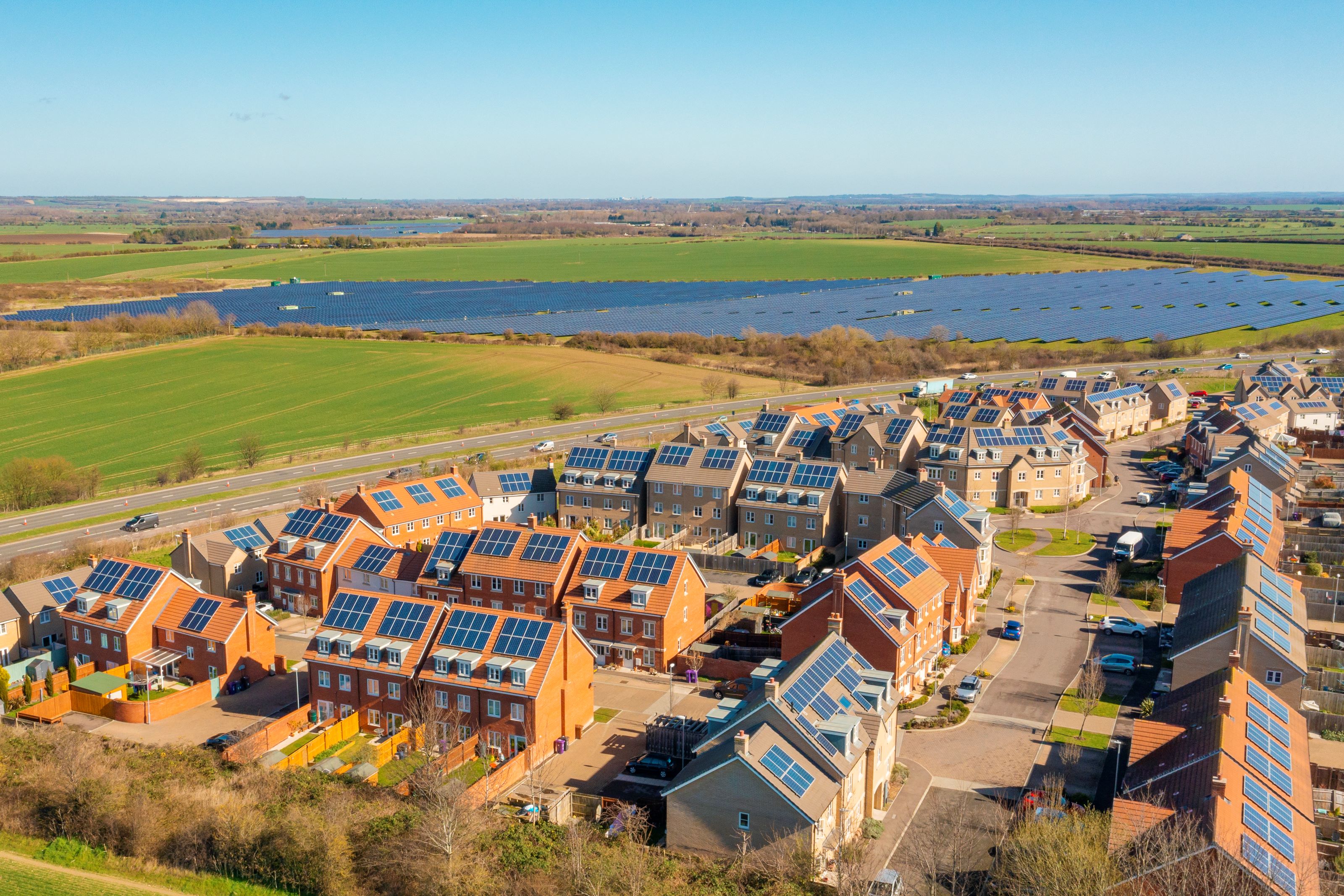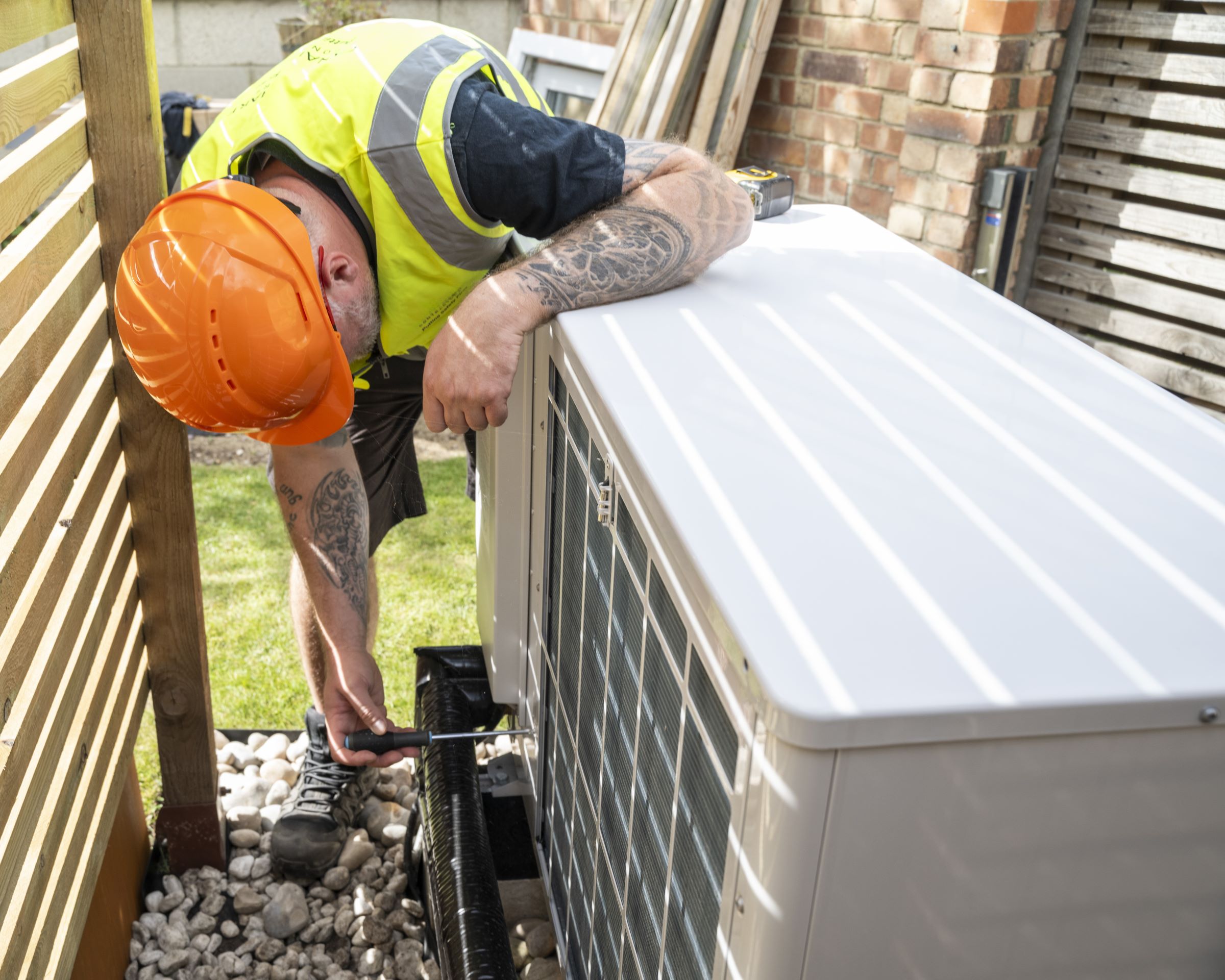Government review into heat pump noise recommends lifting planning restrictions after finding 'low number of complaints'
The latest DEFRA review into heat pump noises found that residents who lived near a heat pump reported few complaints and recommended removing the one-metre rule for heat pumps

A government review into heat pump noise has recommended reducing planning restrictions for heat pumps after finding there was a 'low number of complaints' associated with their noise.
The latest report into heat pump noise has recommended removing some permitted development requirements for heat pump installations despite concerns previously being raised around the potential noise pollution from the heating system.
The official government review by the Department for Environment, Food and Rural Affairs (DEFRA) into noise problems from air source heat pumps in residential areas is investigating the concerns that heat pumps fail to meet the government's own Microgeneration Certification Scheme (MCS) guidelines.
Are heat pumps are too loud for MCS accreditation?
The UK government has set a target of 600,000 heat pump installations per year by 2028 as part of its bid to decarbonise heating.
In order to encourage this, the government has implemented the Boiler Upgrade Scheme (BUS) giving homeowners a £7,500 grant to go towards a heat pump installation.
However, it was found that many current heat pumps would not qualify for this due to not complying with regulations set out by the MCS.
Part of this scheme requires heat pumps to not generate a noise above 42 decibels within one metre of a neighbour’s door or window.
Get the Homebuilding & Renovating Newsletter
Bring your dream home to life with expert advice, how to guides and design inspiration. Sign up for our newsletter and get two free tickets to a Homebuilding & Renovating Show near you.
A DEFRA review into heat pump noise was compiled by experts from the consultancies Apex Acoustics, Sustainable Acoustics and ANV Measurement Systems and they found none of the top five heat pump manufacturers produced heat pumps this quiet.
Heat pump installations also have to comply with MCS standards to be installed without planning permission as a permitted development.
'Low number of complaints' for heat pump noise
A Department for Energy Security and Net Zero (DESNZ) review of air source heat pump noise emissions has recommended removing requirements for air source heat pumps (ASHPs) to be at least one metre away from neighbouring properties.
A study was conducted on a small sample (139) of residents who lived near a heat pump and were asked about the noise from the heat pumps and it was found there were "a low number of complaints" associated with heat pump noise.
It was found that "in quieter areas, noise from ASHPs has the potential to cause relatively more adverse effects" but in areas of higher sound levels "installations may be unduly denied despite higher existing sound levels justifying a higher noise level". It was concluded that the one-metre requirement was "not necessary".
It was also found that assessments for ASHP installations requiring planning permission should take into account the "background sound level" of the area in order to "aid wider deployment of ASHPs".
Jeremy Hunt announced in his Autumn Statement he would be changing heat pump permitted development rights to remove these "blanket" restrictions for heat pumps.
However, it was also suggested that installers should consider “acoustic reflections from surrounding surfaces” which were found to "increase the resulting noise level at a neighbouring property”.

How do heat pumps produce noise?
Heat pumps pump heat from one place to another. They use a compressor and a circulating structure of liquid or gas refrigerant to extract heat from outside sources and pump it indoors.
There are two different types – air source heat pumps absorb heat from the outside air, while ground source heat pumps use pipes buried in the garden to extract heat from the ground.
The reason air source heat pumps can be noisy is due to their main elements – compressor, AC condenser, expansion valve, fan, and evaporator – which can all be heard operating when in use, particularly the compressor and the fan.
There is also noise produced by vibrations. The air can produce noise when passing through the heat exchanger, with a variable intensity depending on the pressure. This causes buzzing sounds to be emitted and it’s this constant hum that can disturb homeowners and neighbours, particularly when several heat pumps are operating in close proximity.
How much noise do they produce?
To ensure neighbours aren’t disturbed during air source heat pump installation permitted development rights require sound levels to not exceed 42 decibels when measured at a point one metre away from the neighbour’s nearest door or window.
However, according to manufacturer Environ Technologies, an air source heat pump generally produces noise levels of 40-60 decibels from a distance of one metre away, depending on the model.
However, units get quieter as the technology evolves. For example, the latest model of Mitsubishi Electric’s latest Ecodan air source heat pump claims to be quieter than the average gas boiler.
Chris Harvey, Heating Specialist from Stelrad, tells Homebuilding & Renovating: “All heating products will make noise, the volume of noise will depend on how much work the product is doing.
"For heat pumps, the greater the workload, the louder the heat pump will be. This is due to the speed of the fan that is drawing warm air into the compressor. But if you stood next to a heat pump, you’d expect the noise level to be similar to a microwave or a whirring desk-top fan.
"It might be irritating if it was in your bedroom and you wanted peace and quiet, but the good news is that heat pumps are kept outside, out of the way."

Final review expected next summer
The DESNZ said it expects the final review to be released by summer. It will probe how design enhancements and installation locations can reduce the volume.
A Defra spokesperson said: “Heat pumps are a proven, scalable option for decarbonising heat. These are located outside the home and typically have sound levels similar to a fridge.
“We have seen incredible innovation over the past decade, particularly in noise reduction, and are reviewing this to ensure planning rules keep pace with advances in technology.”
How to minimise heat pump noise
Chris Harvey explained that minimising noise pollution from your heat pump is all about positioning.
"If you are worried about this noise, then the location that you install them in should be the first thing that you consider. You probably shouldn’t place a heat pump below any windows, so ensure that proper planning is conducted before installing and there shouldn’t be an issue," he told Homebuilding & Renovating.
"There are official planning requirements when it comes to air source heat pumps (which will be noisier than ground source heat pumps), however, this should not be a problem if planned carefully. They need to be installed by an expert, and really it all comes down to location and where you are positioning them.
"It’s understandable that people will be concerned if there is constant humming in residential areas (if hundreds are placed outside people’s homes). Research is currently being done regarding the cumulative noise levels of heat pumps, so perhaps a trial should be undertaken before they are all rolled out to test the cumulative noise levels of mass heat pump installations.
"Perhaps a better design can reduce the noise volume, as well as how they are positioned, this is something which the technology and innovations that we have seen in recent years should be able to help with.”
Sam is based in Coventry and has been a news reporter for nearly 20 years. His work has featured in the Mirror, The Sun, MailOnline, the Independent, and news outlets throughout the world. As a copywriter, he has written for clients as diverse as Saint-Gobain, Michelin, Halfords Autocentre, Great British Heating, and Irwin Industrial Tools. During the pandemic, he converted a van into a mini-camper and is currently planning to convert his shed into an office and Star Wars shrine.
- Joseph MullaneNews Editor

